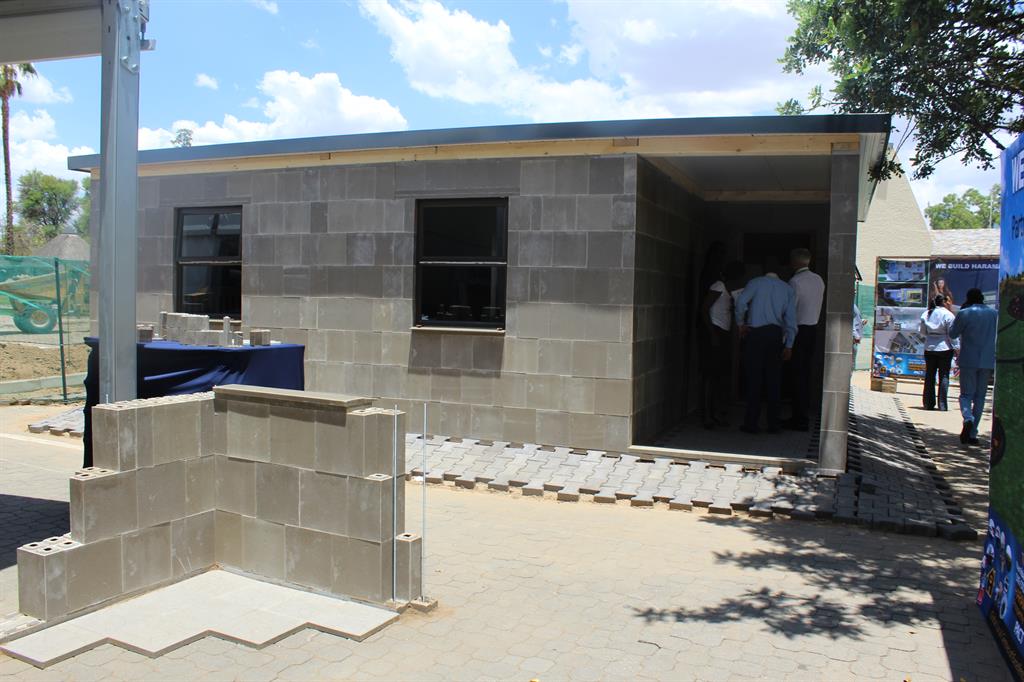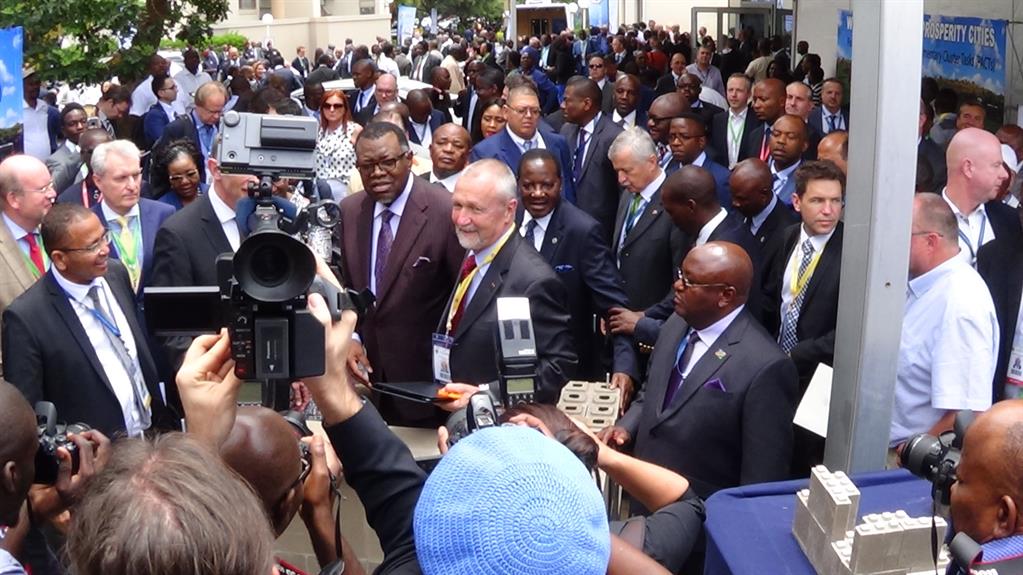Bricks have had their day
Polycare recently presented a house it says will take at most two days to build and is very affordable when compared to conventional houses.
Anglo-German investors Gerhard Dust, Anant Suchak and Ramon Gray may have the perfect solution to the country's housing woes. The trio presented a Build-It-Yourself housing model which they say adheres to the strictest health and safety checks, is highly affordable, is environmentally friendly and takes two to three days to construct.
The trio put a house on display at the Invest in Namibia International Conference and say there has been overwhelming interest in the model house.
“After the Invest in Namibia International Conference, hundreds of people walked through our model house and asked, 'When can we start buying the houses, we want to set up our own houses'. A lot of people said, 'I would like to have such a house',” says Gerhard Dust, chief executive officer of Polycare.
“This is a clear indication of support from the base. The other support we have received was from the government. We have met with the president and several governors already. We have also met with the mayors of Okahandja and Windhoek. Everyone has said to us, 'You must come back as soon as possible'.”
According to Ramon Gray, even the president has taken a liking in the project. “In Namibia itself, the president has invited us and said, we need your technology. Speaking of our technology, it is environmentally friendly when compared to conventional concrete. We use only 15% of the energy the cement industry uses. The other benefit is employment creation. Eighty-seven percent of the blocks we make come out of Namibia.”
Gray says Polycare is willing to partner with Namibian companies.
“We also have a lot of local partners. We will need roughly six months to set up a factory and train the local people. I am still optimistic that we will be able to build by the end of the year. We have a partnership with Kavango Bricks. We have trained their people by enabling them to dismantle the houses and rebuild. We were introduced to Kavango Bricks by Ambassador Guibeb.”
On conforming to local standards, Gray points out: “We have already talked to the Namibia Standards Institute. This technology is also approved in several markets. Our material was tested by the Bauman Institute in Germany.
“We have applied for confirmation in Germany. All this testing, they conducted tests you couldn't even imagine. We have met German standards testing. Further to that we have won an innovation prize in Kuwait. Testing it, they said the technology was unbelievable. We already have houses in India and Libya. We are also looking to do housing in the United Kingdom.”
Eager to get the ball rolling, Gray says: “We have not yet signed a Memorandum of Understanding (MoU) but will most likely sign one soon. We are still in negotiations. We hope we will have an MoU latest by March. We are really optimistic. We are planning to talk to the National Housing Enterprise and the minister of urban and rural development, Sophia Shaningwa. We are also engaged with local authorities to make this happen.”
It remains to be seen what impact Polycare will have on one of Namibia's most pressing infrastructure needs, which is housing.
OGONE TLHAGE
The trio put a house on display at the Invest in Namibia International Conference and say there has been overwhelming interest in the model house.
“After the Invest in Namibia International Conference, hundreds of people walked through our model house and asked, 'When can we start buying the houses, we want to set up our own houses'. A lot of people said, 'I would like to have such a house',” says Gerhard Dust, chief executive officer of Polycare.
“This is a clear indication of support from the base. The other support we have received was from the government. We have met with the president and several governors already. We have also met with the mayors of Okahandja and Windhoek. Everyone has said to us, 'You must come back as soon as possible'.”
According to Ramon Gray, even the president has taken a liking in the project. “In Namibia itself, the president has invited us and said, we need your technology. Speaking of our technology, it is environmentally friendly when compared to conventional concrete. We use only 15% of the energy the cement industry uses. The other benefit is employment creation. Eighty-seven percent of the blocks we make come out of Namibia.”
Gray says Polycare is willing to partner with Namibian companies.
“We also have a lot of local partners. We will need roughly six months to set up a factory and train the local people. I am still optimistic that we will be able to build by the end of the year. We have a partnership with Kavango Bricks. We have trained their people by enabling them to dismantle the houses and rebuild. We were introduced to Kavango Bricks by Ambassador Guibeb.”
On conforming to local standards, Gray points out: “We have already talked to the Namibia Standards Institute. This technology is also approved in several markets. Our material was tested by the Bauman Institute in Germany.
“We have applied for confirmation in Germany. All this testing, they conducted tests you couldn't even imagine. We have met German standards testing. Further to that we have won an innovation prize in Kuwait. Testing it, they said the technology was unbelievable. We already have houses in India and Libya. We are also looking to do housing in the United Kingdom.”
Eager to get the ball rolling, Gray says: “We have not yet signed a Memorandum of Understanding (MoU) but will most likely sign one soon. We are still in negotiations. We hope we will have an MoU latest by March. We are really optimistic. We are planning to talk to the National Housing Enterprise and the minister of urban and rural development, Sophia Shaningwa. We are also engaged with local authorities to make this happen.”
It remains to be seen what impact Polycare will have on one of Namibia's most pressing infrastructure needs, which is housing.
OGONE TLHAGE






Comments
Namibian Sun
No comments have been left on this article